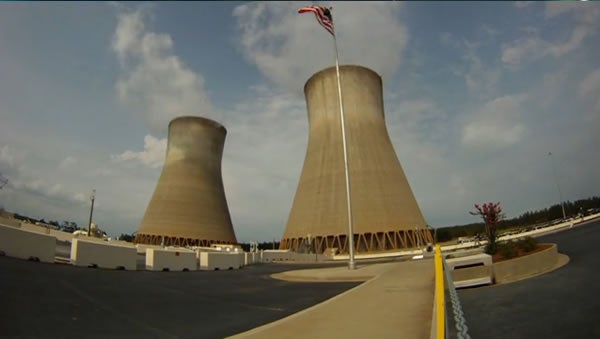Questions the Senate Should Ask NRC Nominee Allison Macfarlane
Jack Spencer /
The Senate Committee on Environment and Public Works will hold a hearing tomorrow on the nomination of Allison Macfarlane and the re-nomination of Kristine Svinicki to the Nuclear Regulatory Commission (NRC).
Though questioning of both nominees is important, Svinicki has already gone through one confirmation hearing and numerous other oversight hearings and has ably served one term as a commissioner. By any reasonable standard, she meets the qualifications to serve another term.
Much less is known about Macfarlane. Thus, even under normal circumstances, one should expect a more thorough vetting of Macfarlane. But this nomination is not occurring under normal circumstances. Consider that Macfarlane is:
- being nominated to chair a commission on which she has never served;
- replacing a resigning commissioner whose chairmanship was wrought with controversy almost from day one;
- being asked to lead a commission that has just had one of its fundamental regulations invalidated by a federal appeals court;
- known as a critic of the Yucca Mountain project, which is a primary source of many of the commission’s problems over the past year; and
- being asked to take over the nation’s nuclear industry regulatory agency during a time of growth, reform, and change.
None of this, however, is to suggest that Macfarlane is not qualified to lead the NRC; it is merely to point out that the Senate has an even greater obligation to ensure that the nominee is fully vetted before giving its advice and consent to her nomination.
To that end, there are four areas of questioning that the committee should investigate.
1. How Will Past Public Policy Positions Impact Her Work as Chairman?
Whether real or perceived, many believe that resigning NRC chairman Gregory Jaczko allowed his policy positions, especially on Yucca Mountain, to influence his decision making at the NRC. Thus, the committee should ask Macfarlane and series of questions related to her views on how political positions should impact the role of a regulator, such as:
- Should past policy positions impact the decision making of NRC commissioners?
- Does your position on Yucca Mountain impact how you will handle Yucca-related issues as chairman?
- Have any politicians asked you to carry forward any specific policy positions to the NRC? Has anyone spoken to you about any expectations that you may or may not support any specific nuclear policy issues?
2. Recent Court Decisions That Impact the NRC
On June 1, 2012, a federal appeals court ruled that the Department of Energy provided no justification for continuing to collect $750 million per year from nuclear utilities for nuclear waste disposal activities. The ruling makes sense, since the U.S. government has no waste disposal program. Then last Friday, the same court threw out the NRC’s waste confidence rule that allows nuclear plants to store their waste on site without doing site-specific environmental impact analyses.
Related to these rulings, the committee should consider asking Macfarlane the following:
- Do you agree with the federal court’s decision regarding the NRC’s waste confidence rule?
- Do you think that utilities should still be required to pay the nuclear waste fee despite the federal government providing no such services?
- How do you think continuing the NRC’s review of the Yucca application would impact these court decisions?
3. On Yucca Mountain
The source of much of the controversy plaguing the NRC in recent years is the Administration’s handling of the Yucca Mountain program. Simply put, the Administration’s choice to ignore the Nuclear Waste Policy Act and proceed to terminate the Yucca program without either a backup plan or any technical justification is what caused much controversy at the NRC. Thus, knowing Macfarlane’s views on the subject is critical. Some possible questions might include:
- Is your criticism of Yucca Mountain the result of how the geologic characteristics were assessed or with the program more broadly?
- If the geologic measurement issues were corrected, would you then support or reconsider supporting the program?
- If the NRC staff determines that the Yucca is safe, would you support issuing a permit?
- Do you believe that the nation can gain important knowledge from completing the Yucca license review?
- Should the NRC release the full Safety Evaluation Report related to the Yucca Mountain application?
4. Licensing New Reactors
One of the most important roles that the NRC will have in the coming years is preparing to effectively and efficiently regulate a growing and technologically diversifying nuclear industry. Maintaining the NRC’s high standards for safety oversight while expanding its capacity to regulate an evolving industry will be paramount. Questions to help better understand how Macfarlane may handle these issues include:
- Does the completion of the Vogle and V.C. Summer application give you confidence that the pending applications can be completed more quickly?
- Do you believe that the NRC has the regulatory infrastructure and resources to effectively regulate new technologies?
- Are you committed to establishing cost-effective and technology-neutral standards for small and advanced reactor designs?
- Are you committed to performing cost-benefit analyses for all new and revised regulations and standards for small and advanced reactors?
Good Leadership Needed
The NRC desperately needs good leadership following the controversial chairmanship and sudden resignation of Jaczko. Thorough questioning from the committee can help America know that is what it is getting with Macfarlane.

